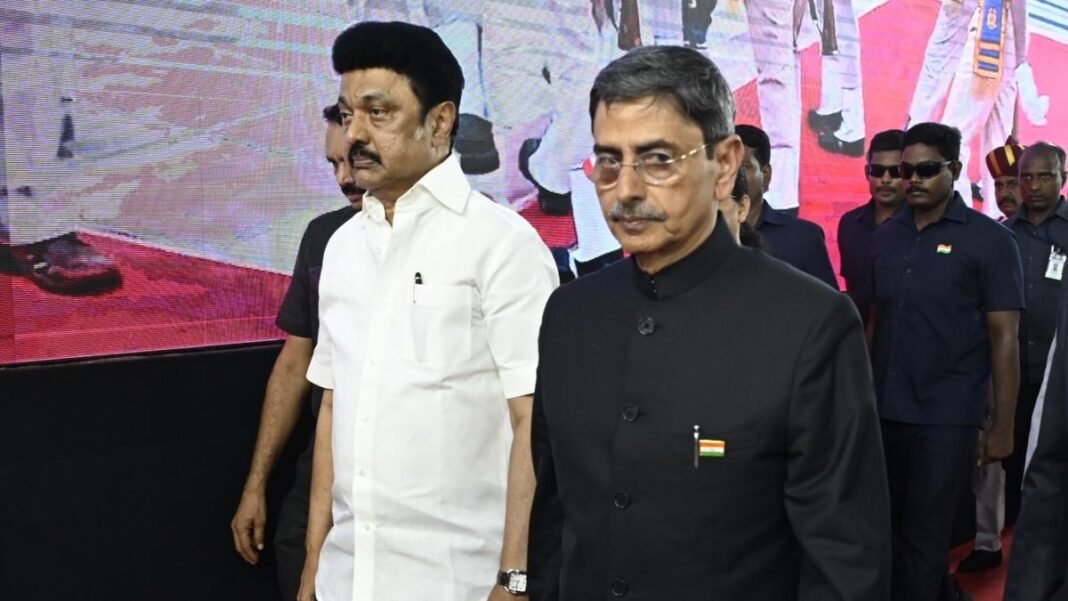Governors’ Confrontation with Elected Governments: A Wider Phenomenon Than Just Tamil Nadu
Governors’ powers are being increasingly scrutinized as they delay in assenting to Bills, leading to a confrontation with Opposition-ruled States.
Governors of various states in India have often been pitted against elected governments, with prolonged delays in assenting to Bills becoming a major point of contention. This phenomenon is not limited to Tamil Nadu alone, as incidents from Punjab, Kerala, and West Bengal demonstrate. The issue has garnered attention, with the top court of the land, the Supreme Court, being approached by several state governments to address the issue.
In the recent past, Governors have been exerting their powers without much regard for the consequences, much to the frustration of elected governments. This is evident in Punjab, where Governor Banwarilal Purohit faced criticism from the Chief Justice of India (CJI) D.Y. Chandrachud for his handling of the situation. The CJI chided the Governor, saying, "You are playing with fire" and emphasizing that the real power vests with elected representatives of the people in a parliamentary form of democracy. This statement serves as a stark reminder of the lacunae in the exercise of powers by Governors.
In Kerala, the situation was equally precarious. The State government moved two separate petitions against Governor Arif Mohammed Khan, accusing him of trying to "defeat the rights of the people" of the State by indefinitely sitting on crucial Bills, particularly those related to post-COVID public health concerns. This move was taken in light of the Governor’s alleged reluctance to give his assent to the Bills, which had serious implications for the well-being of the people.
The issue is not limited to these two states alone. Even the West Bengal government has been affected, with a collective of academicians, including former Vice Chancellors, urging the State government to approach the Supreme Court against the Governor. This move was necessitated due to the delay in the selection of Vice Chancellors for 31 universities in the State, which has stalled the search and selection committees.
Governing Body Conundrums
• The Supreme Court has been approached by several State governments to address the issue of prolonged delays in assenting to Bills by Governors.
• Governors have been accused of exercising their powers without much regard for the consequences, leading to conflicts with elected governments.
• The real power vested with elected representatives of the people in a parliamentary form of democracy.
Conclusion
The confrontation between Governors and elected governments is a pressing issue that requires immediate attention. The delay in assenting to Bills has far-reaching consequences, not only for the functioning of governments but also for the well-being of the people. It is imperative that the Governors exercise their powers responsibly and with due regard for the democratic process. Failing which, the Supreme Court may have to intervene to ensure that the powers of the Governors are exercised in accordance with the Constitution.
Keyword-rich terms: Governors’ powers, assenting to Bills, Opposition-ruled States, Supreme Court, parliamentary form of democracy, democratic process.
Hashtags: #GovernorsPowers #AssentingToBills #OppositionRuledStates #SupremeCourt #ParliamentaryDemocracy #DemocraticProcess




